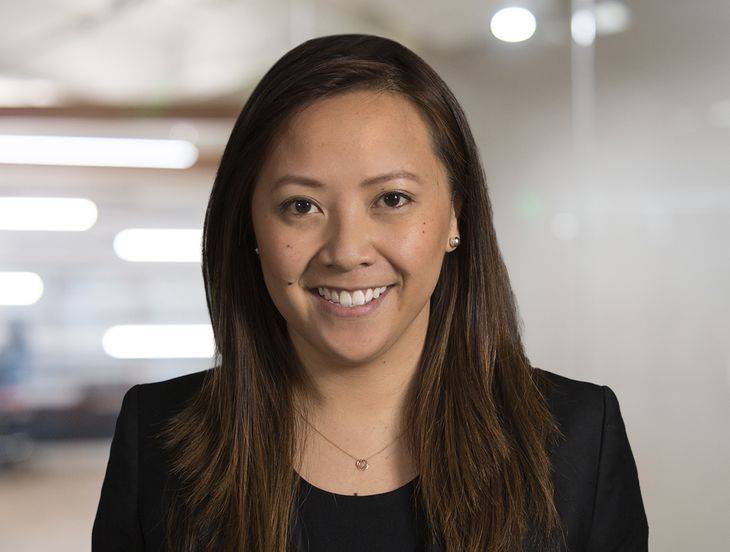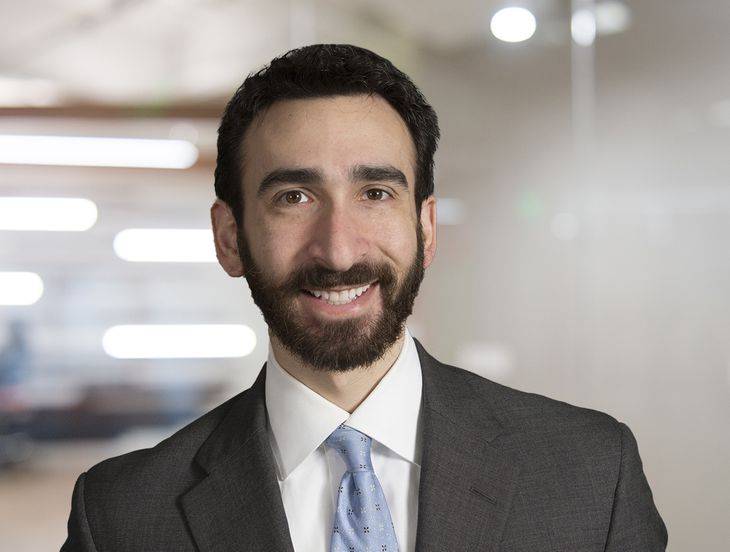6 Questions To Ask To Avoid COVID-19 Wage And Hour Lawsuits
Insights
6.09.20
With well over 175 COVID-19-related employment lawsuits already having been filed nationwide, employers need to keep abreast of ongoing issues that impact the physical and remote workplace. One area where employers need to be mindful is in the context of employees’ conduct before and after their shifts (also referred to as “preliminary” and “postliminary” activities) and whether such time is compensable. For example, in today’s environment, you may wonder whether you are required to pay employees for time spent washing their personal protective equipment (PPE) or uniforms to limit the transmission risk of COVID-19. Asking yourself six questions will help you determine your wage and hour obligations in these turbulent times.
Cook County (IL) Faces COVID-19 Collective And Class Action
The recent case of David Evans III et al. v. Thomas J. Dart et al., which was filed in an Illinois federal court, provides some good context to understand the issues at play. In that case, several correctional officers have brought a collective and class action against Cook County pursuant to the federal Fair Labor Standards Act (FLSA) and the Illinois Wage Payment and Collection Act (IWPCA).
They claim, among other things, that the County (1) did not pay the correctional officers the requisite overtime wages for the time before and after their shifts washing their persons, uniforms, and PPE, which amounted to approximately 20 to 30 minutes per shift; and (2) did not pay the correctional officers a higher wage rate for volunteering to work with a COVID-19 positive population, as purportedly required by a separate agreement (allegedly contained in emails) between the parties.
Of further note, the correctional officers were subject to a collective bargaining agreement between their union and the County. According to the complaint, the collective bargaining agreement did not reference payment for the correctional officers’ pre- and post-shift activities.
The case is currently pending before the United States District Court for the Northern District of Illinois. It is important to note that the allegations mentioned above are simply allegations at this point, and the employer will have an opportunity to tell its side of the story and defend against the claims in court. However, even a review of unproven allegations can provide a helpful lesson into best practices you can take to avoid being served with a lawsuit of your own.
What Do Federal And State Wage And Hour Laws Require?
By way of general background, the FLSA requires that employers pay employees subject to the statute’s provisions for all time worked, that employees be paid at least the mandated minimum wage rate, and one-and-a-half times employees’ regular wage rate for all time worked over 40 hours per week. Of course, these concepts are not as simple as they seem.
For example, what if an employee engages in pre-work or post-work activities in connection with their job as alleged in this lawsuit? In this regard, the David Evans III case highlights several important questions, including but not limited to the following: when is an employee “working” for purposes of the FLSA?
The FLSA requires employers to compensate employees for their “principal activities,” which constitute all activities that are “an integral and indispensable part of the employee’s principal activities” and are therefore required in order to perform a principal activity. Thus, if a preliminary or postliminary activity (i.e., before or after an employee’s scheduled shift) is integral to an employee’s principal activities during the shift, then the employee’s time engaging in those preliminary or postliminary activities may contribute toward an employee’s 40-hour-per-week threshold – which might impact when (if at all) an employee is entitled to earn an overtime wage rate.
As examples of compensable preliminary or postliminary activities, the FLSA regulations identify changing clothes at a chemical plant to be a principal activity because an employee’s duties may not be able to be performed in the absence of a specialized uniform. In addition, in 2014, the U.S. Supreme Court noted that the time employees at a battery plant spent showering and changing clothes constituted a “principal activity,” and therefore compensable, because the chemicals in the plant were toxic to human beings. On the other hand, the Supreme Court also noted that employees at a poultry plant need not be compensated for waiting to put on protective gear because it was too many steps removed from their principal activities.
As evidenced by the FLSA regulations and applicable Supreme Court precedent, the line between a compensable principal activity and a non-compensable activity can be thin and significantly dependent upon the facts. Being on the right side of that line can have a substantial impact on employers. Prevailing employees may be entitled to lost wages, liquidated damages, and attorneys’ fees. Indeed, the risks can be high.
As to the Illinois state wage and hour claim in the David Evans III matter, the IWPCA requires, among other things, that employees be paid on time, for all wages for time worked, and as agreed upon between the employee and employer. Notably, the IWPCA does not require a contract for payment, but rather an “agreement.” Similar to the FLSA, compliance is key because noncompliance poses significant risk for employers. Namely, the IWPCA provides for lost wages, 2% of the underpayment for each month that the wages have been unpaid, attorneys’ fees, and (in some instances) criminal liability, among other things.
What Should You Do? Ask Yourself These 6 Questions
As the David Evans III case teaches us, employers need to be mindful of employees’ preliminary and postliminary activities in addition to how those activities interplay with employees’ job duties. To address these matters, you need to ask six key questions to determine if you have an available defense if faced with a lawsuit akin to the one brought in David Evans III:
- Is the employee exempt from the FLSA? Several jobs are not subject to the provisions of the FLSA, including the overtime provisions. This evaluation is extremely fact-specific, but if an employee is exempt from the FLSA, then you may not be liable for any wages or overtime in connection with preliminary and postliminary activities under the statute. Such may be the case even if such activities are “an integral and indispensable part of the employee’s principal activities.”
- What are the preliminary and postliminary activities in question? If the employee is subject to the FLSA, the preliminary or postliminary activities must be “an integral and indispensable part of the employee’s principal activities” in order to be compensable. As illustrated by the FLSA regulations and Supreme Court precedent, the battery plant worker dealing with toxic chemicals who changes clothes and showers after their shift may have a cognizable FLSA claim if that time remains unpaid, whereas the poultry plant worker waiting to don protective gear may not.
- What does the job description say? An employee’s job description is not conclusive evidence of all of their duties or whether they are FLSA-exempt, but it can be helpful. Job descriptions need to be carefully drafted such that you are better prepared to argue what preliminary and postliminary activities are “an integral and indispensable part of the employee’s principal activities.”
- What provisions are included in a collective bargaining agreement (if applicable) and have you complied with those provisions? Where an employer has entered into a collective bargaining agreement, employees may be afforded more rights than what are provided under the FLSA or the IWPCA. You need to be mindful of the contents of any collective bargaining agreement in addition to any statutory requirements.
- Related to the previous question, does the collective bargaining agreement contain an exclusivity provision? The correctional officers in David Evans III alleged the existence of communications outside of the collective bargaining agreement that would purportedly entitle them to additional compensation. Whether these additional communications altered the compensation relationship between the correctional officers and the County may ultimately be subject to the terms of the collective bargaining agreement.
- Was there a separate wage “agreement” independent of the collective bargaining agreement? In David Evans III, the correctional officers alleged that a Superintendent of the County’s Sheriff’s Office offered a higher wage rate for volunteering to work with a COVID-19-positive population. However, one of the emails from the Superintendent identified by the correctional offers notes that it was as yet undecided as to whether the correctional officers who volunteered would receive additional compensation in time or pay. This is likely to be an issue during the course of litigation.
Conclusion
This list of questions is by no means complete, but it is great starting point you should keep in mind when developing your policies and practices. Ultimately, you should carefully review your employees’ preliminary or postliminary activities and determine whether they are sufficiently linked to employees’ duties such that compensation may be required. You should review employees’ job duties and descriptions, and you should closely monitor employees’ preliminary and postliminary activities. If any matter raises a red flag (or even if it does not), you should discuss it with counsel.
For further information about COVID-19-related litigation being filed across the country, you can visit our COVID-19 Employment Litigation Tracker. Our COVID-19 Employment Litigation and Class & Collective Actions section also has a listing of our litigation-related alerts and team members handling these types of cases.
Fisher Phillips will continue to monitor the rapidly developing COVID-19 situation and provide updates as appropriate. Make sure you are subscribed to Fisher Phillips’ Alert System to get the most up-to-date information. For further information, contact your Fisher Phillips attorney or any attorney in our Chicago office. You can also review our FP BEYOND THE CURVE: Post-Pandemic Back-To-Business FAQs For Employers and our FP Resource Center For Employers.
This Legal Alert provides an overview of a specific developing situation. It is not intended to be, and should not be construed as, legal advice for any particular fact situation.
Related People
-
- Jessica D. Causgrove
- Partner
-
- Franklin Z. Wolf
- Partner

